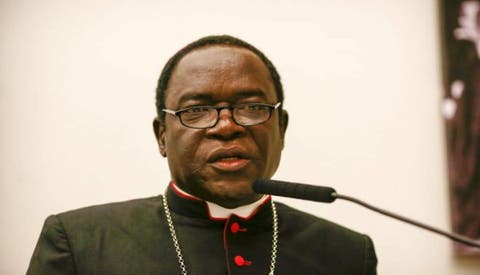After 290 days, the Academic Staff Union of Universities, ASUU, on Wednesday, called off the strike embarked on to protest ‘the backlog of unmet agreements between its members and the federal government. “
It is distasteful that the strike, which began as a warning strike on March 9, lasted a total of 9 months and 15 days before it was suspended by the university lecturers.
Simply put, ASUU spent 79.23% of 2020 on strike.
According to a recent report by Dataphyte, ASUU has embarked on a strike 15 times since the return of democracy in 1999.
The union has spent a total of 208 weeks embarking on industrial action.
Succinctly put, ASUU has spent 4 years on strike. That is, a full term of an elected administration has been wasted on strike in the last 21 years.
ASUU has spent more time on strike than the number of years Umaru Musa Yar’Adua spent as the president of the country.
The union spent 22 weeks on strike in 1999, 13 weeks in 2001, two weeks in 2002, 26 weeks in 2003 and two weeks in 2005. It was fair in 2006 and 2008 as the union spent one week each on strike but the lecturers were out of work for 13 weeks in 2007.
The pattern continues in 2009 as 17 weeks were spent on strike, 22 weeks in 2010, nine weeks in 2011, 22 weeks in 2013, four weeks in 2017 and 13 weeks in 2018. 2020 witnessed the longest- 41 weeks and 3 days.
As disheartening as these figures here, the possibility of another strike in no distant time is more worrisome.
Since its formation in 1978, the struggle for a fair wage for university staff, autonomy and proper funding of the university system have remained the main cause of ASUU embarking on strike.
Professor Ogunyemi in March said the strike was declared in order to compel the government to implement the outstanding agreements and resolutions of the Memorandum of Understanding [MoU] it signed with ASUU in 2009, 2013 and 2017 as well as the Memorandum of Action [MoA] of 2019.
Except for the Nigerian University Pension Management Company [NUPEMCO] Limited that successfully took off, the government has failed to honour all other aspects of the 2019 MoA.
Other unfulfilled parts of the agreements include part payment of outstanding arrears of Earned Academic Allowances (EAAs) as well as mainstreaming further payments into annual budgets beginning from 2019. The agreement to send visitation panels to all federal universities, tentatively agreed to commence in March last year, is also outstanding. The hot dispute that later ensued over enrolment of ASUU members on the Integrated Payroll and Personnel Information System (IPPIS) later came to overshadow all other aspects of the FG-ASUU dispute.
Sadly, it has become a norm for the FG to enter into agreements with universities’ lecturers after days of strike, only to abandon the implementation halfway once the industrial action is suspended.
Little wonder, Prof. Ogunyemi, who announced the suspension of the recent strike, after the federal government offered a cumulative N65 billion to the lecturers to address earned academic allowances and revitalisation of universities said the union will monitor the compliance level of the federal government on the concessions it (FG) has made.
He warned that the union would return to strike without notice if the government fails in meeting its part of the agreement reached with the university lecturers.
This should send a disturbing signal to the major casualties of these reoccurring strikes- students and their parents. Students in public universities, their parents/guardians and Nigeria’s economy are the worst victims each time ASUU goes on strike. The implications of months of idleness are dire- the recent destruction and arsons witnessed in the aftermath of the #EndSARS protest is a clear pointer to this.
These constant revolts by lecturers also upturned their academic calendars. The effect of these constant punctuations from strikes on the learning process is better imagined. This contributes to the negative consensus of Nigerian graduates being ill-equipped vis-à-vis Western counterparts. It further exacerbates the recruitment dilemma employer’s face – with many employers claiming that Nigerian graduates are unemployable.
Prof. Ogunyemi, who said lecturers sympathised with students, noted that “no amount of sacrifice would be too much to get the matter resolved as long as the government is consistent with its commitments.”
The don and his colleagues should express more than sympathy.
They should be worried that more than 79% of this calendar year has been wasted on strike. Students have been denied the opportunity to learn and progress in their academic pursuits. Some of them have lost their lives during the period of the strike while there are those unable to return to the classroom.
ASUU must devise a more decisive way to get the government to attend to its demands without bastardising the education system the union is trying to protect. It is unfair that four years have been wasted in the last 21 years.
In fact, most students are expected to spend four years in the university in accordance with the education system in Nigeria, but reoccurring strikes have made this impossible and frustrating for students, parents and employers.
Culled from Daily Trust







